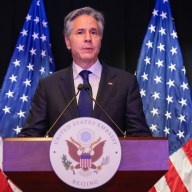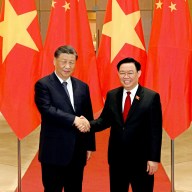When Anne Moore became an oncologist, breast cancer doctors were all surgeons — and all men.
Women had yet to populate research labs or take half of the slots in med schools.
In the ‘60s, the awareness of — and funding for — detection and treatment of breast cancer type of cancer was nowhere near what it is today.
A lot has changed. Today, Moore is considered “the first name that comes to mind for women seeking help with a breast cancer diagnosis,” said Jo Ivey Boufford, president of the New York Academy of Medicine.
Last week Moore’s office at Weill Cornell Breast Center was abuzz following a medical panel’s announcement that women should wait until age 50, instead of 40, to receive regular mammograms. The information dominated national news.
Moore’s own take is that “the message should be: a woman between 40 and 50, unless she’s in a high risk group, should discuss it with her primary care doctor.”
Since 1990, breast cancer deaths have declined due to early detection to “active treatment right after surgery,” Moore said.
“Breast cancer has always been a political issue,” Moore said. “It has to do with the perception that women’s health has not been a major concern of the medical profession of the past.”
















